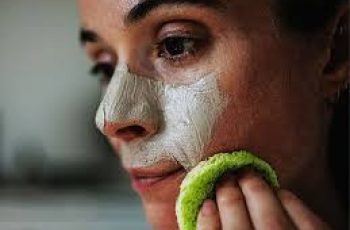
Exosomes in Skin Care Products and Treatments
Exosomes[1] are the best antiaging new skin care ingredient found in skin rejuvenating cosmeceuticals and are considered the latest in cutting-edge skin care technology- but what are the benefits? are they safe?
Which exosome products are best? some of these topical serums work the same as PRP (platelet rich plasma) injections.
However, not all exosome containing skin care products and treatments that are coming out will be worth the expensive price. How do you know which exosome skin care products are the best?
What is the best brand of exosome skin care products?
Although there are only a few exosomes products on the market- they are not all the same. The source of the exosome and how they are extracted is critical to get skin benefits from serums.
Right now the skin care brand plated™ Skin Science has the best data to back up its use.[2] Used twice a day for 6 weeks it was shown to improve the skin’s appearance by reducing wrinkles and redness.
These results were evident at weeks 4-6. This means you must use the product for 4-6 weeks before you will see a result. A heart transplant cardiologist named Dr. Atta Behfar actually patented these platelet derived exosomes for use in aging skin.
These products by Plated SkinScience are the best exosome products on the market:
slide 1 of 1
Plated Skin Science Scalp Treatment 1 fl. oz. Plated Skin Science HAIR Serum – Skin Type Solutions
Plated Skin Science HAIR Serum
10,560,000
See Product
To learn more about how exosomes work on skin, see my You Tube video interview with skin regeneration doctor Saranya Wiles MD and transplant cardiologist Dr. Atta Behfar. We discuss definition and benefits of exosomes on skin.
What skin conditions do exosomes treat?
Exosomes are used as anti-aging ingredients in medical grade skin care products and are used in cosmetic procedures such as after microneedling. They are usually used to rejuvenate skin but may be effective at treating skin problems such as:
acne/pimples
eczema
herpes cold sores
inflammation
rosacea
wounds
wrinkles
Are exosome products right for your skin type?
Any time you are building a skin care routine and choosing the best skin care products, you should be matching the skin care products to your Baumann Skin Type. It is the only way to be confident that the money and time you are spending is worth it.
Take the Quiz
Skin Benefits of Topical Exosomes
Exosome treatments are already used to treat many things such as muscle injury, joint injuries, heart protection prior to transplantation, and heal diabetic wounds. In dermatology and antiaging, they are used as antiaging ingredients for skin rejuvenation.
This ingredient…
Rejuvenates the skin by increasing collagen
Decreases cellular senesence
Speeds healing
Decreases inflammation
Exosome serums are most often used to treat fine lines and wrinkles and to soothe skin. They may make pimples and cold sores heal faster but it is too early to know if they are effective for this use.
What are exosomes?
The definition of an exosome is “the smallest type of extracellular vesicle[3] ranging from 30 to 150 nm in size (diameter).”
Extracellular vesicles are lipid bilayer bound sphere-like shapes that contain and protect important cell signaling cargo such as proteases (MMPs), inflammatory cytokines, growth factors, mRNA, miRNA, mitochondrial DNA and genomic DNA.
Function of exosomes?
The function of an exosome is to allow cells to communicate to each other in extremely complex ways. In order to facilitate this communication, these tiny vesicles must be intact to deliver the contents and messages to the target tissue.
Where do exosomes come from?
Exosomes are naturally occurring and must be isolated from some sort of body tissue. Skin cells such as keratinocytes and fibroblasts secrete exosomes that have many skin benefits.
These vesicles activate stem cells that then migrate to sites of injury and facilitate skin remodeling leading to skin rejuvenation. The actions of exosomes differ depending upon their source.
The exosomes used in skin treatments usually come from:
fat cells (adipose)
umbilical cord
placenta
platelets
The source of the tissue determines what messages and actions the exosomes have.
Because platelets play such an important role in wound healing, collagen formation and inflammation, platelets are the best source of exosomes for skin rejuvenation. Exosomes isolated from platelets have similar benefits to injectable PRP treatments (Platelet Rich Plasma) used to treat skin aging.
How exosomes are extracted from the body tissue is very important. If not isolated properly, they can break down and lose their contents. For example, if centrifuges are used to extract the exosomes, the speed and size of the centrifuge affect how intact the exosomes are when extracted.
If an exosome is not intact, it no longer has the beneficial contents (RNA, growth factors) that it needs for skin rejuvenation.
The skin benefits of exosomes depend upon many factors such as:
Origin
Size
Content
Function
This is why not all skin care products and treatments with exosomes do what they claim! There are so many difficult processes that have to occur to get the correct exosomes out of the right skin tissue and make sure it contains the best signaling molecules for the desired skin benefits. The resulting serum must also be stable to have a good shelf life.
Are exosomes better than stem cell treatments?
It is now believed that many of the beneficial effects that stem cells have for skin rejuvenation actually are actually a result of secreted exosomes[4] rather than from the stem cells. This means that exosomes can be used instead of stem cells. Exosomes are safer and less expensive to use than stem cells.
How do exosomes cause skin effects?
Exosomes are lipid membrane packets that contain cell signaling molecules that allow cells to communicate with each other. The exosomes are released from the cells and move through body fluids to reach their target to communicate messages.
Inside the exosome sphere is a space called the interluminal space. Imagine it as the inside of a ball. This interluminal space contains cell signaling proteins, growth factors and RNA that are protected inside the exosome from being degraded.
Safety
Exosomes seem to be safe. Safety would depends on what type of exosome and how it is used (IV vs topical vs injected.) You do not want exosomes that cross the blood brain barrier. The PEP exosomes in Plated do not cross the blood brain barrier. I have not seen data on the other types of exosomes and their ability to cross the blood brain barrier, but it is doubtful that topically applied ones will.
I am following all the developments in this field and so far there are not safety concerns.
What do exosomes do?
Exosomes change the way cells in the body act. They can even transfer RNA material to another cell.
Exosomes act on other cells to affect:
Immune system function
Wound healing[5],[6]
Metabolic programming
What do exosomes contain?
Exosomes contain different types of contents depending upon their source and function.
They have exosomes messaging molecules such as:
mRNA
micro RNA
growth factors
Immune factors
Evidence based research studies on exosomes:
There are many studies on exosomes. Here are a few that looked at the use of exosomes on human skin.
Platelet derived exosomes:
A single arm longitudinal, non-randomized study looked at exosomes derived from platelets that were used twice daily on the face.[7] Visia-CR imaging showed a statistically significant improvement in skin health which correlated in improvement in redness and wrinkles on the face. Improvement in skin occurred at 4-6 weeks of twice daily use of plated™ Skin Science Intensive Repair Serum.
Human placenta mesenchymal stem cell derived exosomes
A placebo controlled randomized double blind trial looked at 40 patients. In 20 of these patients, exosomes derived from mesenchymal stem cells from human placenta were placed on skin that had been microneedled. In patients that received the exosomes, improvement in the skin’s appearance was seen with improved tone, quality and clarity.[8] The results showed continuous improvement from Day 30-120. In contrast, the 20 patients in the control group who did not received exosomes. Although both groups received microneedling treatments on days 0,30,60 and 90, only the exosome treated group reported a high degree of satisfaction. Exosome sare a great addition to microneedling procedures because no adverse events were seen in this study and the injury caused by microneedling creates an inflammatory trigger that stimulates the exosomes to respond with regenerating signals.
Human induced pluripotential stem cells from cell culture
Exosomes isolated from human induced pluripotential stem cells protected human fibroblasts in cell culture when irradiated with UVB light.[9]
What is the science of how exosomes work?
For the science geeks like me- here is more in-depth information for your learning pleasure:
Platelet derived exosomes that contain platelet derived exosome product (PEP)
PEP speeds wound healing[10],[11]
Speeds healing of Achilles tendons[12]
Speeds healing of rotator cuff injury[13]
Induced pluripotent stem (iPS) cell-derived exosomes (iPS-Exos)
(iPS-Exos) speed wound healing. [14]
Protect fibroblasts from UVB damage[15]
Mesenchymal stem cell-derived exosomes (MSC-exosomes)
Mesenchymal stem cell-derived exosomes (MSC-exosomes) have gained
great attention due to their immunomodulatory and regenerative functions.[16]
These “MSC exosomes” are produced from connective tissue stem cells and in some cases are isolated from amniotic fluid. [17] They have been shown to:
Stimulate fibroblast proliferation and migration[18]
Increase collagen extracellular matrix production[19]
Promote angiogenesis[20],[21],[22]
Modulate inflammation[23]
Affect immune response[24]
Reduce skin scarring[25]
MSC exosomes increase ATP production: MSC exosomes contain the 5 enzymes involved in the ATP-generating stage of glycolysis, namely, GAPDH, PGK, PGM, ENO, and PKM2.[26] This increases levels of ATP and NADH.
MSC exosomes decrease oxidative stress.
MSC exosomes act on the immune system by converting inflammatory T Helper 1 cells to anti-inflammatory T Helper 2 cells and increasing anti-inflammatory cytokines like IL-10, TGF-beta3, TIMP, TNF alpha RA, and IL-IRA.
MSC exosomes regulates extracellular matrix formation by Increasing production of TGF-beta 3 and regulating the ratio of Type III to Type I Collagen
Let us help you find the best exosome products for your skin type. It all starts by taking the skin type quiz.


